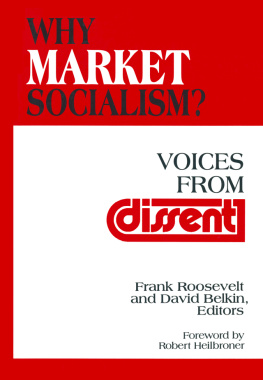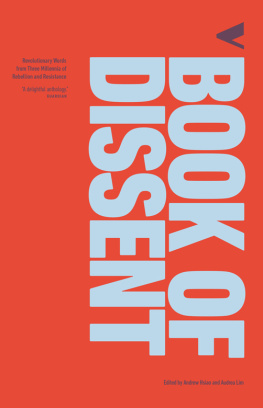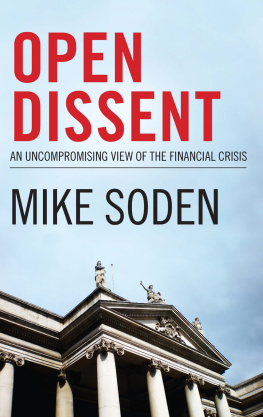Emerald Publishing Limited
Howard House, Wagon Lane, Bingley BD16 1WA, UK
First edition 2021
Copyright 2021 Mike O'Donnell
Published under exclusive licence by Emerald Publishing Limited
Reprints and permissions service
Contact:
No part of this book may be reproduced, stored in a retrieval system, transmitted in any form or by any means electronic, mechanical, photocopying, recording or otherwise without either the prior written permission of the publisher or a licence permitting restricted copying issued in the UK by The Copyright Licensing Agency and in the USA by The Copyright Clearance Center. Any opinions expressed in the chapters are those of the authors. Whilst Emerald makes every effort to ensure the quality and accuracy of its content, Emerald makes no representation implied or otherwise, as to the chapters' suitability and application and disclaims any warranties, express or implied, to their use.
British Library Cataloguing in Publication Data
A catalogue record for this book is available from the British Library
ISBN: 978-1-80043-363-2 (Print)
ISBN: 978-1-80043-362-5 (Online)
ISBN: 978-1-80043-364-9 (Epub)
Preface
This book analyses the crisis-ridden period of the first 20 years of this century. It discusses the internal divisions and external challenges of liberalism and argues the case for a revival of progressive politics and policies in the United States and Europe, particularly Britain. These have been hard years of international conflict, recession, polarised politics and the blight of Covid-19. We may or may not be past peak populism but what has emerged from it in many parts of the world is a hegemony of the political right and much uncertainty on the left. Yet, this may change, partly due to the wake up call of populism and the rethinking it has provoked.
Populism itself, specifically left populism, but more particularly the related but distinct tradition of progressivism offer ideas and policies that could revive radical reform including in relation to the environment, climate change and human and planetary well-being. The legacy of the social movements of the 1960s and 1970s is still strong if severely contested, and must be defended and built on, as must the ideas and vision of younger activists. Old left ideology, though still relevant, is not enough; a new left must find renewed energy and direction. Otherwise there is a risk of an era of deepening illiberalism, inequality and further ecological degradation. Three related themes are developed throughout the book: liberalism hegemony and crisis; the populist challenge to liberalism; and constructing a progressive future whilst combating reactionary nationalism? The relationships between these themes is central to understanding the key political and social developments of a conflict-ridden and anxious period and of finding a way out of it.
Chapter 1 introduces the core themes of the book as described above and defines key supporting concepts, concluding with my own perspective and a vote of confidence in the potential of activist youth as a main carrier of progressive change. Chapter 2 provides an overview of populism, vital because the outbreak of populist sentiment and movements substantially contributed to the events and developments that have so far set the political and cultural agenda of the new millennium, disrupting postCold War liberal hegemony. Two contrasting views of populism are compared: Cas Mudde's sharply critical account of populism and Chantal Mouffe's support for left and opposition to right populism. In the latter part of the chapter, I develop my perspective that cultural populism is semi-autonomous from political populism. Chapter 3 critically examines the core values of liberalism, commenting on its weaknesses and enduring qualities with reference to its historical development. The roots of liberal society lie in the European Enlightenment emerging in the early seventeenth century and gaining momentum in the late eighteenth and early nineteenth centuries of industrial and socio-political revolution. Yet, contradictions within liberalism have contributed to its difficulties, including a tendency of liberal politicians to embroil their countries in overseas wars and latterly lacking either the will or imagination to innovate radically in ideas and policy. As I write the American Capitol building in Washington has been invaded by supporters of President Trump. Those who believe in democracy would be wise not to take it for granted nor to assume that it is beyond improvement.
Chapter 4 analyses why Britain voted for Brexit in 2016 and America for Trump. The underlying trends explaining these dramatic and, for many, unexpected events go back several decades: neoliberalism, globalisation and the rise of anti-immigrant sentiment intertwined with right-wing populism. In the first 20 years of the millennium, a flood of books, mainly written by liberals, warned of serious threats to but also of flaws within liberal democracy. Deep divisions between neoliberals and progressive liberals are discussed, as are perhaps equally damaging disagreements among progressive liberals that weakened opposition to Brexit and Trump. The equality agenda is basic and necessary, but it must accommodate the changes brought about by the social movements that seek a wide margin of identity and lifestyle freedom, bread, certainly, but also roses.
Chapters 5, 6 and 7 examine the above themes in relation to, respectively, the United States, Europe and Britain. These chapters are the geo-political spine of the book. Liberalism is further discussed in terms of two related ideologies or narratives, progressive liberalism and neoliberalism. The latter is seen as a Trojan horse within liberalism, an ideology of extreme competition and capital accumulation in tension with the more humanist and socially interventionist tradition of progressive liberalism, including the regulation (but not destruction) of markets. These two ideologies by no means cover the whole of liberalism which as a way of thinking and acting penetrated almost every aspect of Western culture and gradually much of the rest of the world. Indeed, the process of global modernisation is, for better and worse, largely a liberal one although it has provoked a variety of reactions around the world, many defining their own ideologies and identities, liberal or otherwise. Conservatism, in the sense of support for traditional values and institutions that does not always sit comfortably with its modern identification with capitalism, and socialism's foundation in collective values and a strong state, continue to challenge liberal hegemony both in the West and elsewhere. However, both these ideologies now largely embrace the freedoms won mainly by the social movements mentioned above, sometimes referred to as social liberalism although this term does not convey the tough political struggles involved in achieving them. An important aspect of the sections on liberalism is an analysis of social democracy as an ideology and political practice that combines elements of progressive liberalism and socialism; both traditions can claim a sustained commitment to democratic and social progress that could provide a renewed basis for collaboration. However, whilst belief in human rights extends beyond liberalism, including many socialists and some conservatively minded people, it is particularly embedded within the liberal tradition.














